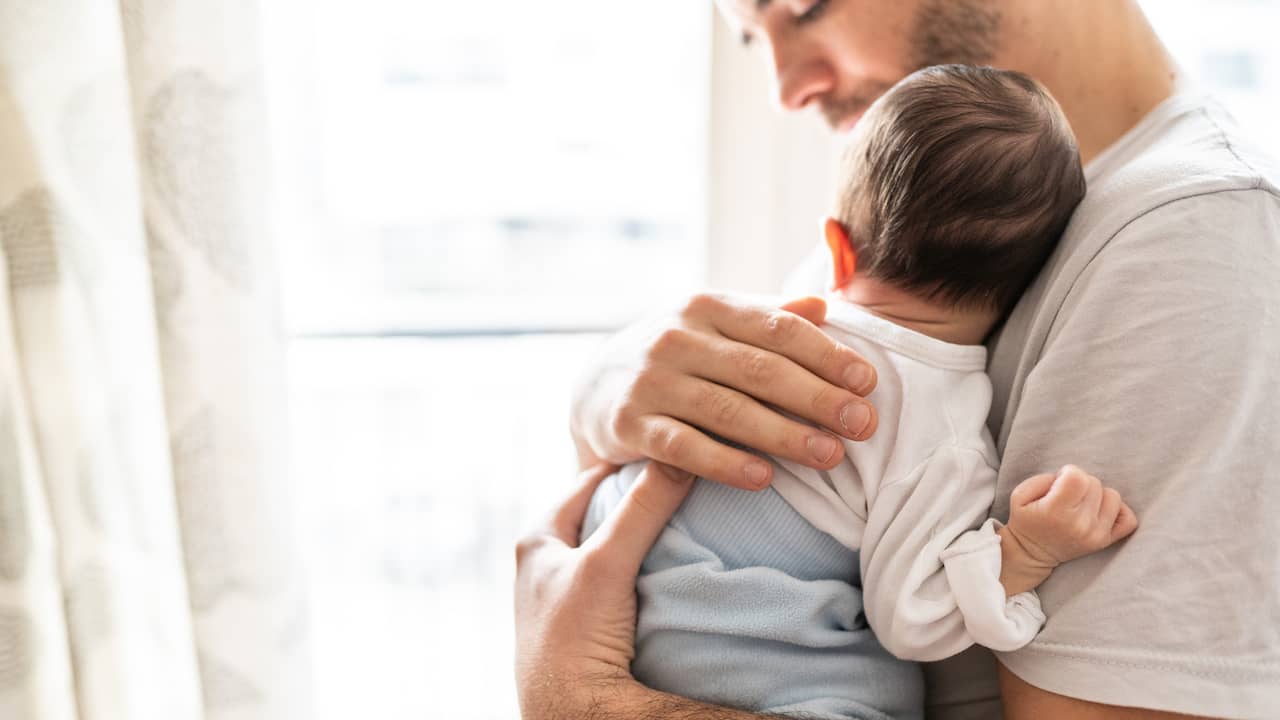There is increasing attention for pre- and post-natal depression in women. It is less known that fathers can also develop postpartum depression after childbirth. “You’re dealing with persistent stereotypes about masculinity and being the ‘stable factor’ in the family.”
By: Elise Vermeeren“A few weeks after the birth of our daughter, I noticed that I was getting worse and worse,” shares Joost (last name known to the editors), father of Mila. “I was irritable, depressed and didn’t sleep well. My sister got post-partum depression after giving birth, so I had experienced this up close. After a month I started googling whether I could also have post-partum depression. I I was ashamed. My wife had been through a hard labor, breastfed and had broken nights, and I was depressed!”
–
Mijke Lambregtse is a (child and youth) psychiatrist at Erasmus MC and has conducted various studies into postnatal depression in men in recent years. “I can only argue for more openness about postpartum depression in men,” says Lambregtse.
–
“It starts with recognizing that men can also develop psychological complaints during pregnancy and after childbirth. We have to deal with persistent stereotypes about masculinity and being the ‘stable factor’ in the family when a woman is vulnerable after childbirth. But also with ignorance and incomprehension, so that you as a man will not quickly come to terms with these complaints.”
–
Women tend to turn inward, while men are more likely to flee. In their work, sports, alcohol or drugs.
More attention and understanding for feelings and experiences
International research shows that about 5 to 10 percent of men experience depressive symptoms after childbirth. “These findings are also in line with our own research, Generation R. This is a large-scale study of almost ten thousand Rotterdam children and their parents who are followed from pregnancy. to end it. 11 percent feel desperate and 9 percent feel lonely.”
–
“We don’t really know what percentage of the men who report these kinds of complaints actually have postpartum depression. But these are numbers that make it clear that more attention and understanding should be given to these feelings and experiences,” says Lambregtse.
–
Postpartum depression does not manifest itself in men in the same way as in women. “When someone is more often than not gloomy or has less pleasure for two weeks, you speak of depression. Other symptoms are decreased concentration and appetite, thoughts of death, a feeling of guilt or a feeling of worth.”
–
“Men are less likely to feel gloomy, but more irritable or agitated and have concentration problems. They also have other coping mechanisms. Women are generally inclined to turn inward, while men are more likely to flee. In their work, sports, alcohol or drugs.”
–
The big problem is that fathers continue to walk around with complaints and depressions are not treated.
Peak at three to six months
The peak of postpartum depression in women occurs between zero and three months after delivery. In men, this happens between three and six months. “This has not yet been investigated, but my hypothesis is that fathers only get around to their own process after those first three months. Then many women start working again, children go to childcare for the first time and there is literally more space. It is often only then that they realize how intensive it has been.”
–
According to Lambregtse, previous depression is an important risk factor for postpartum depression. In addition, the risk of psychological problems in the father is greater if the mother also has psychological problems. “The partner relationship also plays a role. When a relationship comes under heavy pressure or the intimate or sexual relationship is temporarily on the back burner, this can have a lot of impact.”
–


